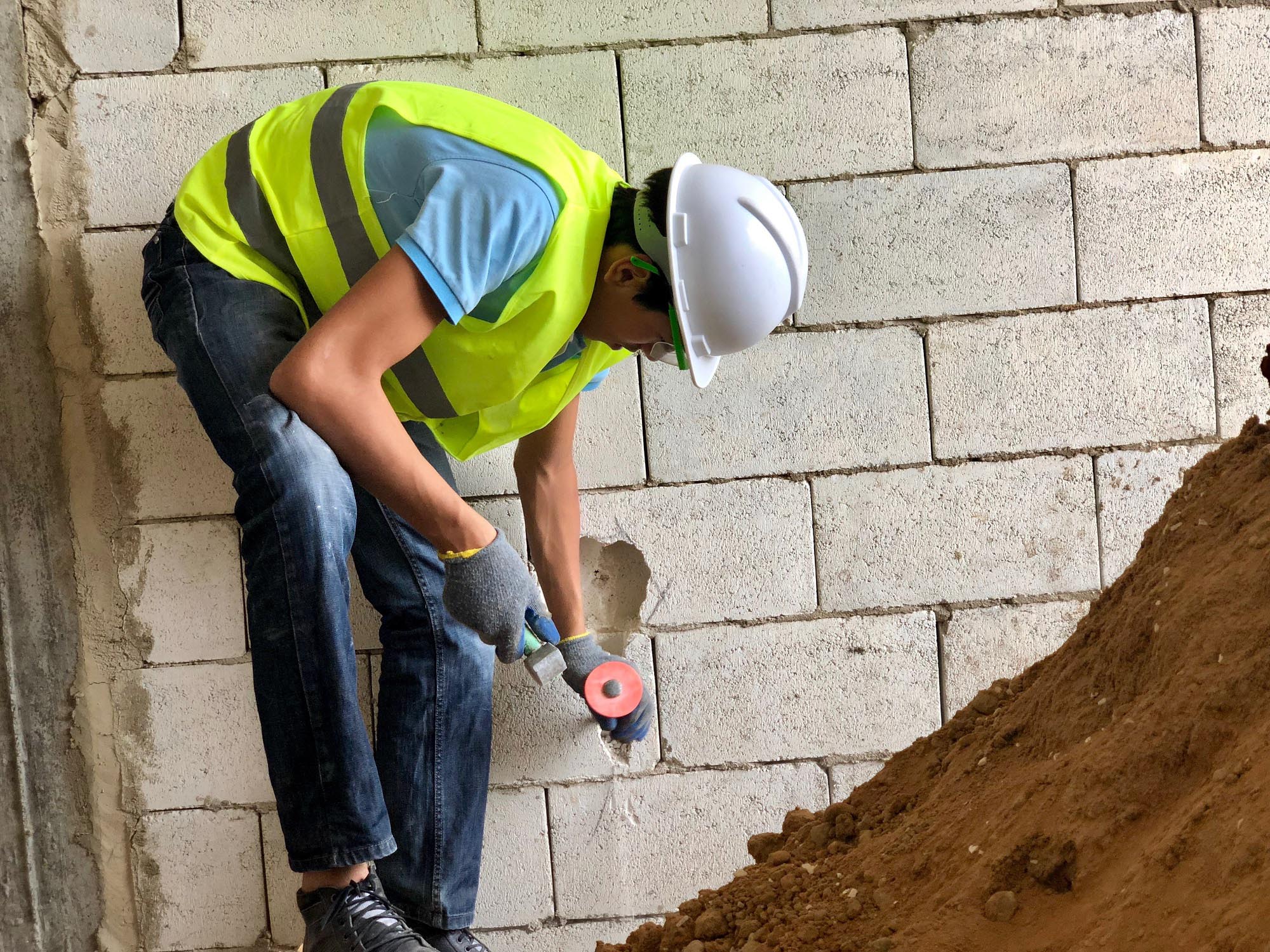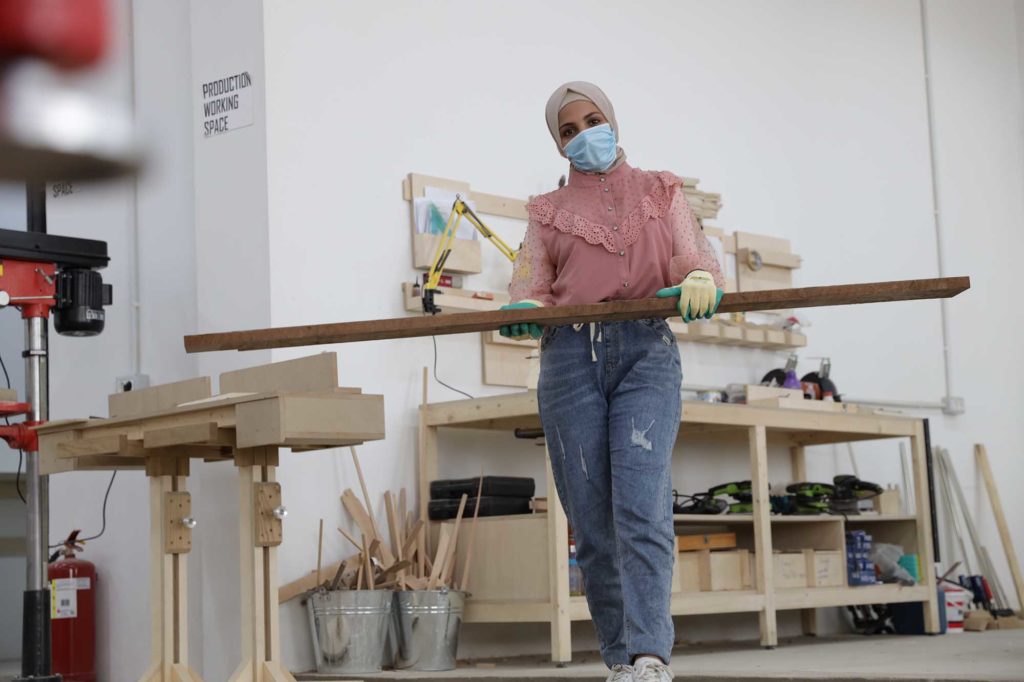EDUCATION
How Young People Are Changing Their Lives in Lebanon
Oct, 2018
"I can now pay half of our rent. They are so proud of me and feel more hopeful about our future. Sometimes I help my neighbors fix minor electrical problems in their homes for a little extra money on the side. It adds up!" - Tarek, vocational course student
This is the story of ten outstanding young people who gained new skills, learned a craft and, against all odds, found employment right after graduation. They are a team of committed Syrian, Palestinian and Lebanese young adults attending Anera vocational courses in Lebanon's Bekaa Valley. They are friends, who help each other find small freelance jobs, communicating through a WhatsApp group and sharing safety tips and home electricity hacks. They exemplify how commitment and hard work, when presented with an opportunity, can lead to a stable livelihood and prosperity.
In response to the very high unemployment rate for youth in Lebanon, Anera partnered with UNICEF to implement a nation-wide vocational training program, as a means to give marginalized Syrian, Lebanese and Palestinian youth opportunities at employment. The vocational courses which Anera's on-ground partners and trainers provide are all-inclusive and ensure that the outreach includes vulnerable youth of all genders, religions and social backgrounds.
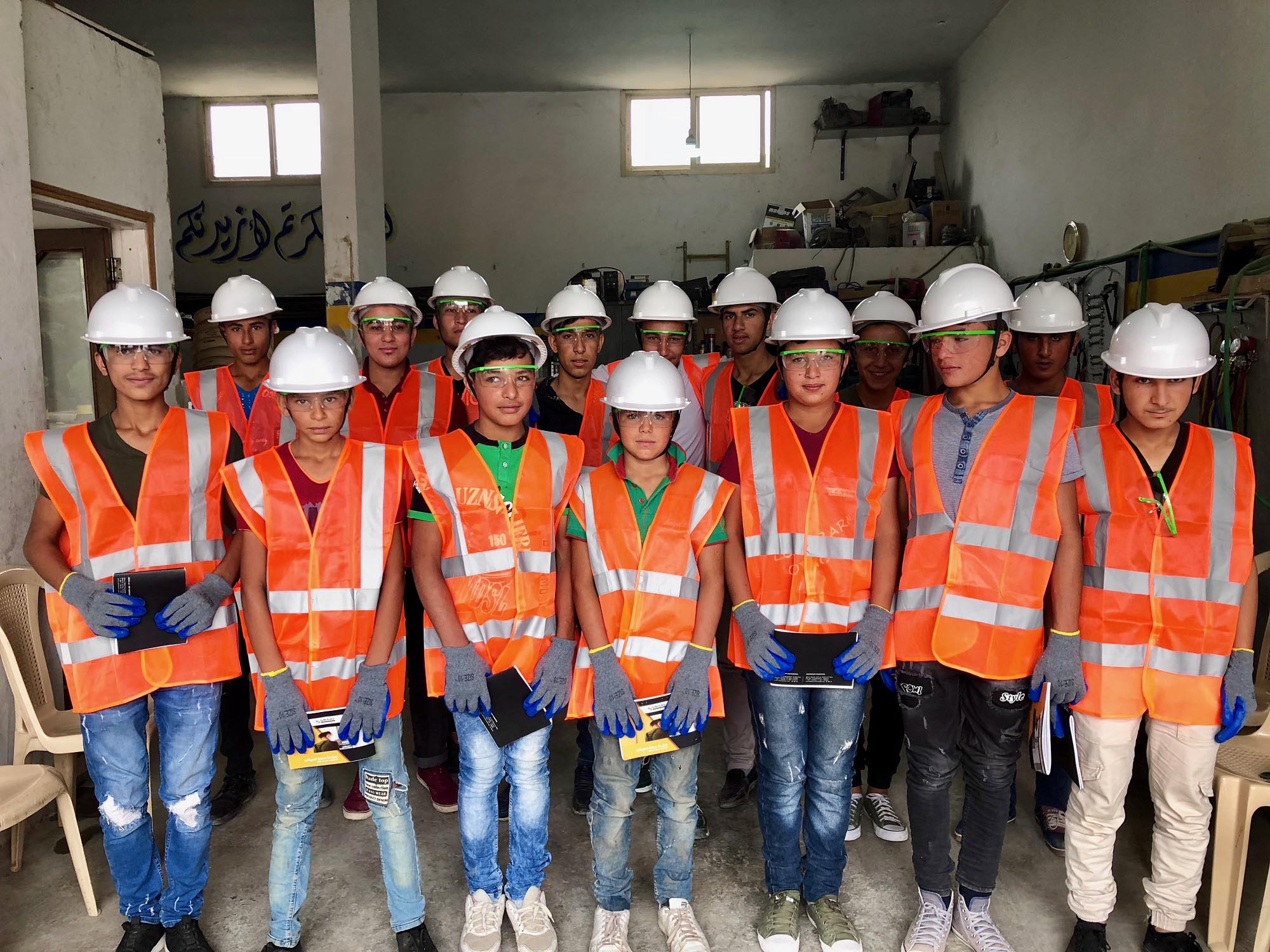

Anera and our partners designed the courses based on extensive needs assessments. After seeing a vast need for electric workers in the Bekaa Valley, Anera implemented a two-phase, home electricity course for youth. The first, theoretical phase is 150 hours of instruction on the basics of home electricity: what it is, how it flows, what the units of measurement are, and how to maintain high levels of safety in carrying out work.
The 22 students who attended the classes learned how to lay tubes in walls with proper materials and insulation as well as how to measure for and place electrical outlets, safety breaker boards and lights. They learned how to set up camera systems and install air conditioning in homes.
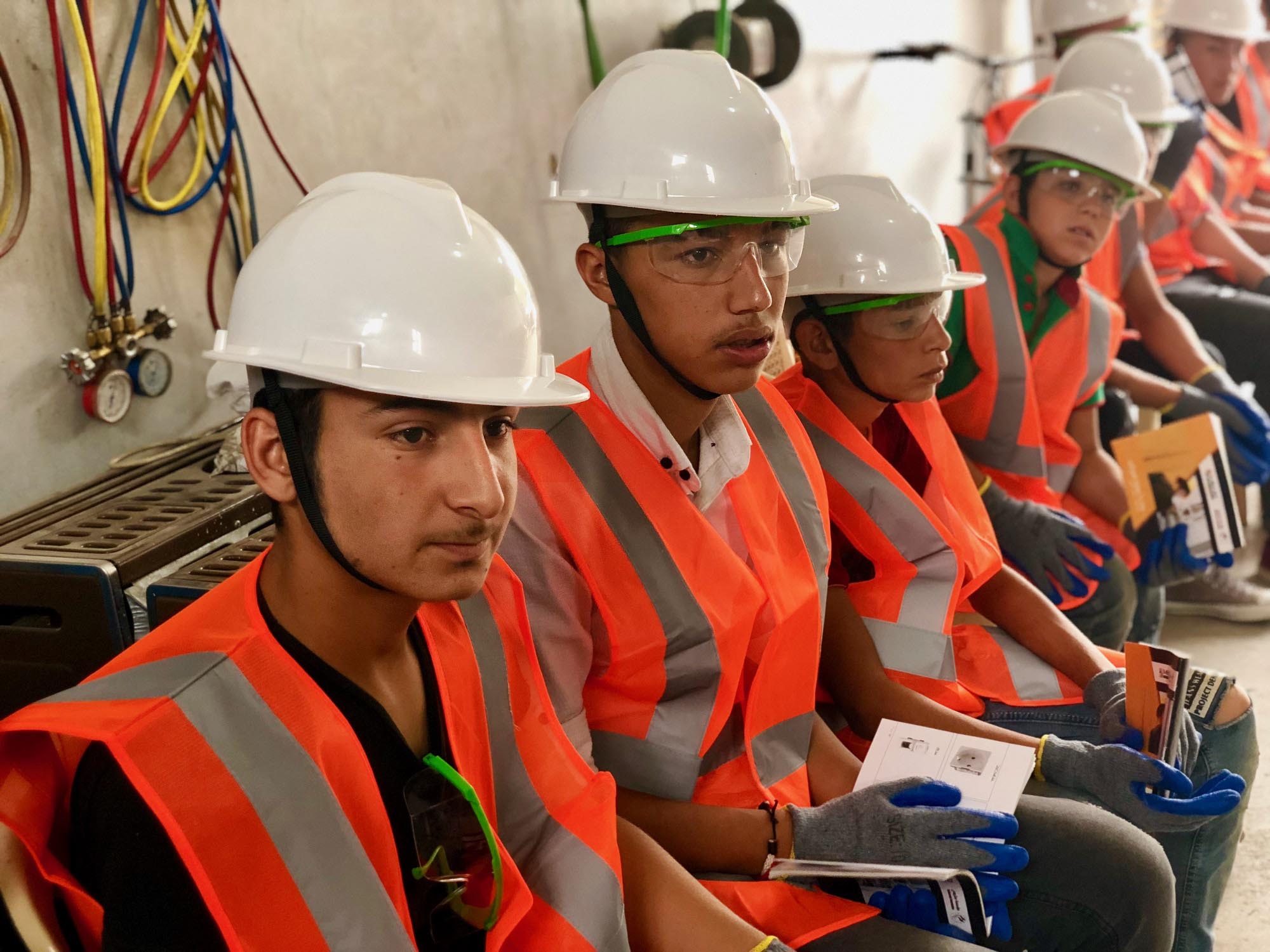

At the end of the first phase, the students moved on to phase two: a 155-hour apprenticeship when they applied what they learned on a real construction site, under the supervision of professional architects, engineers and construction specialists. Safety on site is different than on paper. The dangers are real and vigilance can only be learned with experience.
The top ten students from the course went on to find stable employment after graduation with Mr. Ahmad Bweich, a trainer at the program and a business owner. “I selected the best students to work by my side and I am glad I can support them financially. This hands-on experience will allow them to find long-term jobs at big construction companies and hopefully, one day, open their own businesses.” Mr. Ahamd has since been regularly taking the ten young men to work on construction sites all over Lebanon.
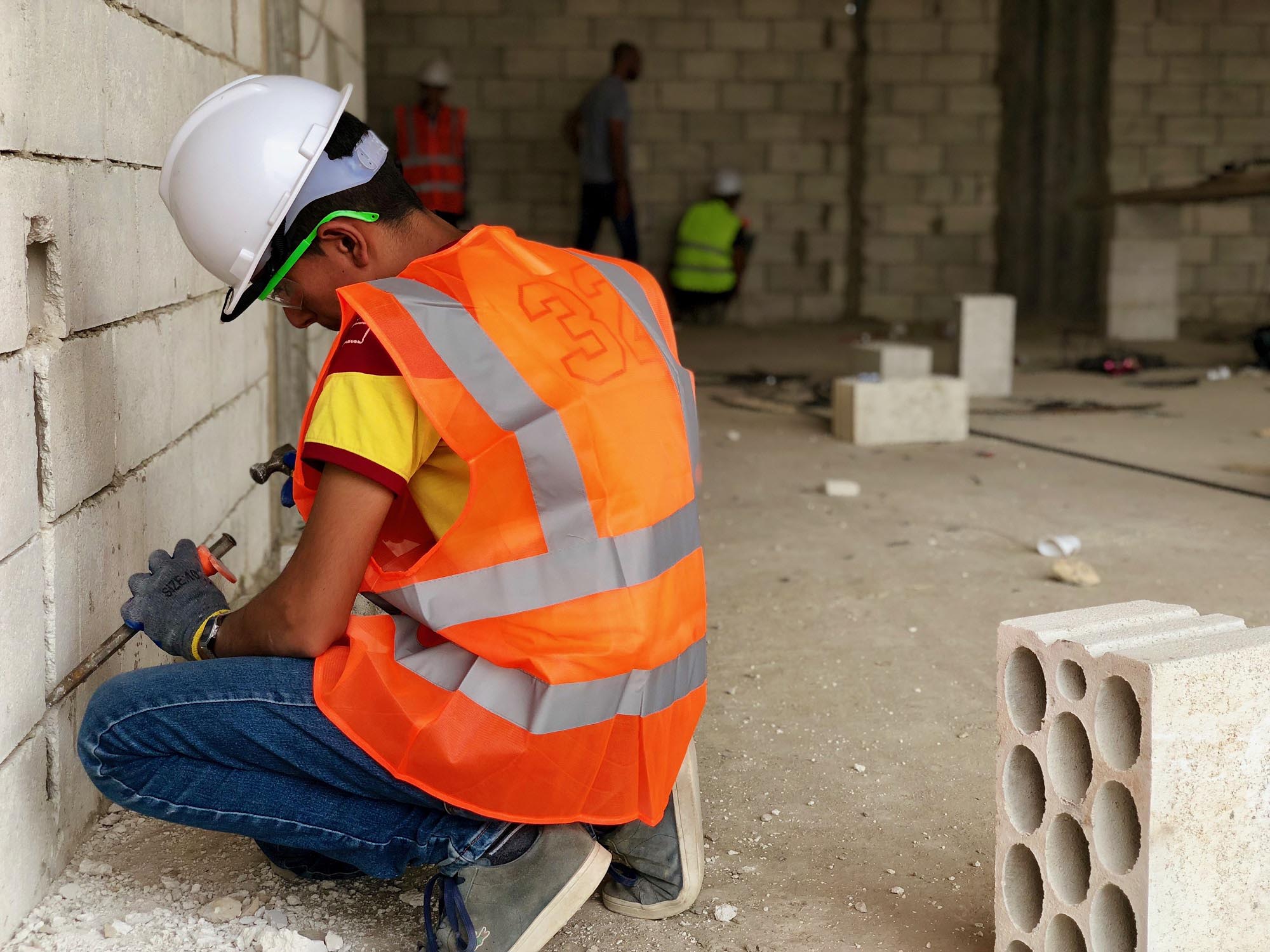

One of the students, Tarek, is 16-years-old now, but was forced to drop out of school a few years ago to support his family in paying their bills. Tarek was selling chewing gum on busy sidewalks and intersections, but after a while he realized the risks of being out all day and late at night. He was worried about letting his family down though.
When asked what his family thought of his enrollment in Anera's program, Tarek said:
"I can now pay half of our rent. They are so proud of me and feel more hopeful about our future. Sometimes I help my neighbors fix minor electrical problems in their homes for a little extra money on the side. It adds up!"
Through programs and initiatives like Anera's youth program, many young men and women get the chance to forge a real path towards a future out of poverty. Having an empowered, self-reliant next generation is the only way to change their reality from depression to prosperity.
Tarek and his teammates are among the thousands of Anera's youth who are benefiting from a UNICEF program called "Quick Impact Skills Development for Adolescents and Youth Affected by the Syrian Refugee Crisis," which is funded by the embassies of Netherlands and Germany in Beirut and UK AID.
